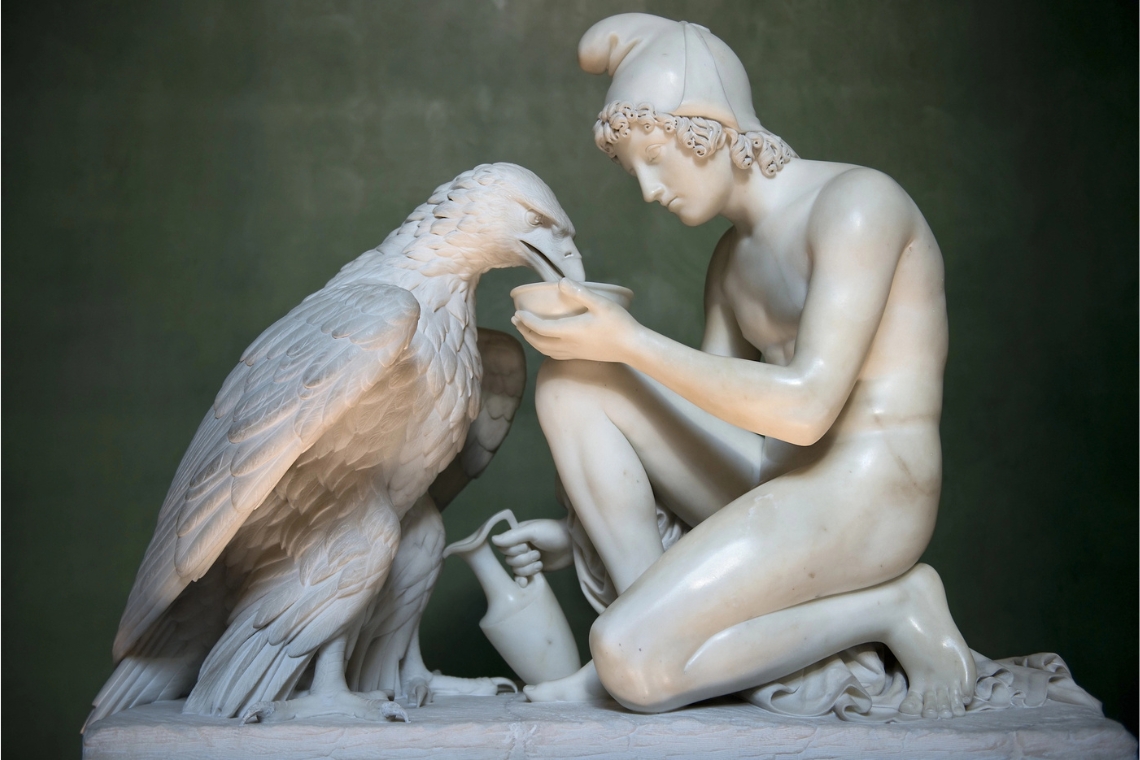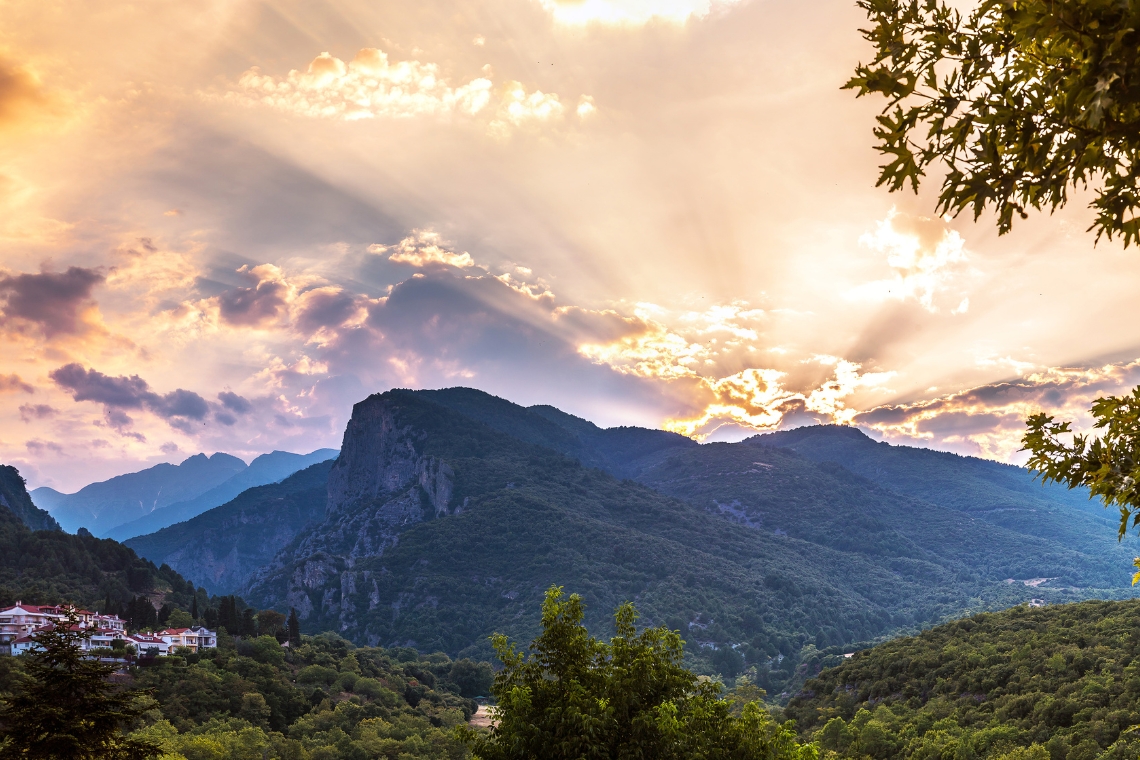Do you know what was the food of the gods according to Greek mythology? Well, the gods who resided on Mount Olympus enjoyed divine food and drink known as ambrosia and nectar. These elements symbolized the divine nature and immortality of the Olympian gods and were thought to bestow immortality and long-lasting youth on those who consumed them.
Ambrosia, the food of the gods, was often paired with nectar, its counterpart in the form of a drink, which was responsible for maintaining the eternal existence of the gods. The gods were often depicted in mythology feasting on ambrosia and nectar, with doves bringing these special substances to their palaces.
Ambrosia and nectar stood for power, divinity and the immortality inherent in the gods of Greek mythology. Furthermore, these divine substances played an important role in various myths and stories, e.g. in healing wounded gods, restoring vitality and influencing the lives of mortals. Without further ado, let’s explore the divine diet and focus on everything you need to know about ambrosia and nectar in mythological tales.
The Divine Diet: Ambrosia and Nectar in Greek Mythology
In Greek mythology, the gods lived on a diet of ambrosia and nectar, food and beverages symbolizing their divine nature and bestowing immortality. Consuming these substances granted the gods everlasting life and maintained their eternal youth.
Ambrosia was considered the food of the gods, while nectar was the preferred divine drink. Hebe, the goddess of youth, and Ganymede, the cupbearer of Zeus, were often associated with serving ambrosia and nectar to the gods in their residence on Mount Olympus. The Olympian gods depended on this daily sustenance to retain their extraordinary powers and immortality.

Ganymede with Zeus Eagle by Bertel Thorvaldsen - Credits: irisphoto11/ Deposit Photos
Apart from being ingested, ambrosia and nectar were used for anointing and cleansing purposes. Examples of this usage can be found in the Trojan War when Zeus' son, Sarpedon, was killed, and Apollo cleansed the body using ambrosia. Similarly, after the death of Patroclus, Thetis anointed his body with ambrosia to prevent decomposition.
In addition to being an important part of the divine diet, the consumption of ambrosia and nectar was transformative. These elements could replace a being's mortal essence with divine qualities, granting them the same immortality enjoyed by the gods.
In summary, ambrosia and nectar were critical aspects of the lives of Olympian gods, fundamental to their very essence as immortal beings.
5-Day Percy Jackson Mythology Trip
Historical Perspectives on Ambrosia and Nectar
The gods were highly reliant on ambrosia and nectar for sustenance and power. For example, Hera, the queen of the Olympian gods and the goddess of marriage and childbirth, needed ambrosia to maintain her beauty and divine status.
Ancient Greek cuisine had its own rich history, distinct from the divine sustenance of ambrosia and nectar. However, myths provided a mystical connection between the gods and the human world. The poet Hesiod is considered one of the earliest literary sources in Greek mythology. He documented the divine origins and significance of ambrosia and nectar in his poem Theogony.
From Athens: Percy Jackson Delphi Day Trip
Not only were ambrosia and nectar consumed as food and drink, but they also held a significant role as anointing fluids. In Greek myths and history, these substances were used to cleanse wounds, preserve the bodies of the deceased, and convey a sense of immortality to mortals.It becomes evident that ambrosia and nectar have captivated the imagination of scholars, historians, and enthusiasts of Greek mythology throughout time.
Cultural Significance of Divine Edibles

Mount Olympus in Greece - Credits: bloodua/ Canva
Divine edibles were also significant in the social and cultural aspects of ancient Greek life. They were often the central theme of the lavish banquets held by the gods, where the deities would indulge in various meat dishes. Dionysus, the god of wine, festivities, and theater, would often be present at these gatherings, symbolizing the more indulgent and pleasurable aspects of life.
In the realm of Greek art, depictions of Ambrosia and Nectar often appeared on various artifacts like pottery and mosaics, reflecting the importance of these divine substances in the ancient Greek psyche. The influence of these mythical substances can even be observed in modern Greek cuisine, where traditional meals often include ingredients and dishes inspired by the mythological stories of the gods.
Conclusion
In conclusion, Ambrosia and Nectar, as divine edibles in Greek mythology, have had a lasting impact on Greek culture, from religious practices and art to their enduring heritage and cuisine.
The stories and myths surrounding them continue to captivate and inspire modern generations, proving that the legacy of these divine substances is truly immortal!
FAQs
What did the Greek gods consume for immortality?
The Greek gods consumed Ambrosia and Nectar for immortality. These substances were brought to Mount Olympus each morning by doves, emphasizing their divine nature.
How does ambrosia relate to the Greek deities?
Ambrosia is the food of the gods in Greek mythology. It bestows immortality and plays a significant role as an anointing fluid. For instance, it was used to cleanse wounds and anoint bodies of the dead to prevent decomposition.
What role does nectar play in Greek mythology?
Nectar is the beverage counterpart of ambrosia, both symbolizing the divine nature and immortality of the Olympian gods. Consuming nectar could transform the very essence of a being.
Are there any other divine edibles in Greek myths besides ambrosia and nectar?
While ambrosia and nectar are the most famous divine edibles in Greek mythology, other mythical foods may have appeared in specific stories and legends. However, ambrosia and nectar remain the primary and most significant foods associated with the Greek gods.

